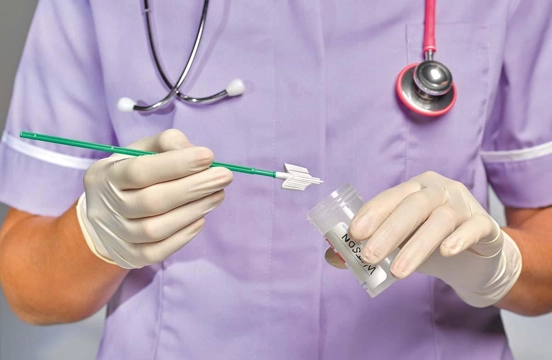
Human Papillomavirus (HPV) is the most common sexually transmitted infection worldwide.
While most infections are temporary and clear on their own, certain high-risk types of HPV can cause cervical, anal, oral, and genital cancers.
Early detection is the key to prevention.
That’s why the HPV test has become an essential part of modern women’s health screenings.
With its advanced laboratories and experienced medical specialists, Turkey now offers HPV testing at European standards.
The HPV test detects the presence and type of Human Papillomavirus in the body.
It is primarily used to assess the risk of cervical cancer.
Certain HPV types can cause abnormal cell growth in the cervix, which may lead to cancer if undetected.
By identifying the virus early, the HPV test allows timely intervention and monitoring.
HPV testing is recommended for the following groups:
Routine HPV testing is not usually recommended for women under 25, as infections at younger ages are typically temporary.
The HPV test is a simple and painless procedure, similar to a Pap smear.
Procedure Steps:
The process takes only a few minutes, requires no anesthesia, and causes no pain.
Results are usually available within 3 to 7 days.
a) HPV DNA Test
b) HPV mRNA Test
c) HPV Genotyping
Feature | HPV Test | Pap Smear |
Detects | The virus itself | Abnormal cell changes |
Purpose | Identifies infection early | Detects precancerous lesions |
Sensitivity | Higher (up to 90%) | Moderate (around 70%) |
Best use | Combined (Co-testing) | Alone or with HPV test |
In Turkey, many clinics use co-testing — performing both HPV DNA and Pap smear together for the most accurate screening.
HPV testing is widely available across Turkey at:
Some major cities also offer home sample collection and postal testing kits, providing convenience for patients who prefer privacy.
HPV testing is free of charge in public hospitals for women with abnormal smear results.
In private laboratories, the cost varies depending on:
HPV test results are typically reported as:
► Further testing (genotyping) is often recommended.
If high-risk types (like HPV 16 or 18) are found, the doctor may perform colposcopy or biopsy for detailed examination.
A positive result does not mean cancer — it simply indicates that monitoring is needed.
► If negative:
► If positive:
Turkey has made major progress in cervical cancer prevention through nationwide HPV screening programs.
These initiatives have significantly improved early detection and reduced cancer-related deaths.
No. The procedure is quick, painless, and similar to a Pap smear.
Don’t panic. HPV infection is common and often temporary. Follow your doctor’s advice for monitoring.
Yes, but routine testing is not recommended. It’s usually done only if visible lesions are present.
Yes. It’s safe and does not affect the pregnancy.
For women aged 30–65, every 5 years (or every 3 years if combined with a Pap smear).
Yes. All personal health data are protected by Turkish privacy laws.
The HPV test is one of the most effective tools for early detection of cervical disease.
This simple and painless test can identify the virus long before it causes cell changes.
Regular HPV screening not only prevents cancer but also helps stop the spread of infection.
With its advanced laboratories, expert gynecologists, and national screening programs,
Turkey has become a regional leader in HPV testing and women’s preventive health.
Remember: Early detection saves lives.